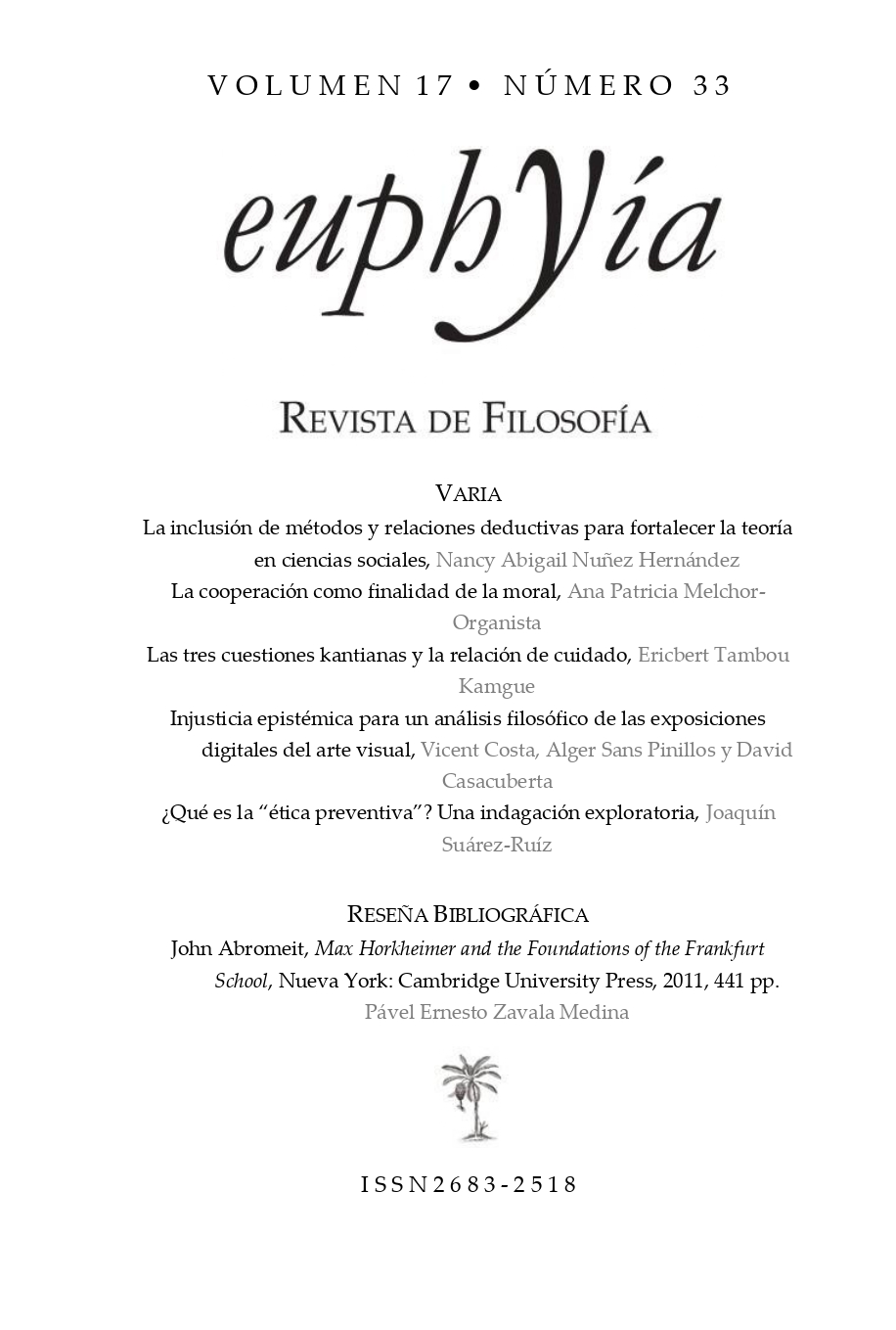Epistemic injustice for a philosophical analysis of digital exhibitions of visual art
DOI:
https://doi.org/10.33064/33euph6520Abstract
The digital transition, driven by advancements in artificial intelligence, presents complex challenges in emerging digital societies. Visual arts have been profoundly influenced by this digitalization, affecting both creative processes and the accessibility and exhibition of artworks. This paper presents a philosophical analysis centered on heritage, specifically focusing on the digital storage, representation, and exhibition of artworks. We employ Miranda Fricker’s theory of epistemic injustice to conduct an ethical and epistemological examination of the use of databases in designing virtual museums, highlighting their role in either perpetuating or alleviating injustices in this context. Finally, we propose abduction as a starting point for a broader future philosophical analysis of the digital museum, exploring the relationships between visitors and museums and their impact on the epistemic-moral landscape within these environments.
Downloads
Downloads
Published
How to Cite
Issue
Section
License

This work is licensed under a Creative Commons Attribution-NonCommercial-NoDerivatives 4.0 International License.

Este obra está bajo una licencia de Creative Commons Reconocimiento-NoComercial-SinObraDerivada 4.0 Internacional.












